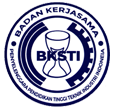Queuing System Simulation to Optimize Waiting Time using the Quality Function Deployment Approach at KFC Pontianak
Abstract
Keywords
Full Text:
PDFReferences
Agyei, W., Asare-Darko, C., & Odilon, F. (2015). Modeling and analysis of queuing systems in banks:(A case study of Ghana Commercial Bank Ltd. Kumasi Main Branch). International Journal of Scientific & Technology Research, 4(07), 160-163.
Amelia, M. C. (2023). Analisis Sistem Antrean pada Pelayanan Go-Food dan Pelayanan Offline di Bakso Gepeng Pak Wanuri (Doctoral dissertation, Sekolah Tinggi Ilmu Ekonomi Indonesia).
Bataona, B. L., Nyoko, A. E., & Nursiani, N. P. (2020). Analisis Sistem Antrian Dalam Optimalisasi Layanan Di Supermarket Hyperstore. Journal of Management: Small and Medium Enterprises (SMEs), 12(2), 225-237. https://doi.org/10.35508/jom.v12i2.2695
Dias, A. S. M. E., Antunes, R. M. G., Abreu, A., Anes, V., Navas, H. V. G., Morgado, T., & Calado, J. M. F. (2022). Utilization of the Arena simulation software and Lean improvements in the management of metal surface treatment processes. Procedia Computer Science, 204, 140-147. DOI: 10.1016/j.procs.2022.08.017
Fadli, M. R. (2021). Memahami desain metode penelitian kualitatif. Humanika, Kajian Ilmiah Mata Kuliah Umum, 21(1), 33-54. doi: 10.21831/hum.v21i1.38075.
Harahap, S.S. 2018. Analisis Kritis atas Laporan Keuangan. Cetakan Keempat Belas. Jakarta. Rajawali Pers.
Heizer, J., Render, B., & Munson, C. (2020). Operations management: sustainability and supply chain management. Pearson.
Herjanto, E. (2009). Sains Manajemen: Analisis Kuantitatif Untuk Pengambilan Keputusan. Jakarta: Grasindo.
Imansuri, F. (2022). Perancangan Model Simulasi Dan Perbaikan Sistem: Studi Kasus Pelayanan Perbankan. Journal of Industrial & Quality Engineering p-ISSN, 2303, 2715. DOI 10.34010/IQE.V10I1.5315
Kelton, W. D., Sadowski, R. P., & Sadowski, D. A. (2002). Simulation with ARENA. McGraw-Hill, Inc..
Melinda, I. D., Marpaung, S. T., & Liquiddanu, E. (2018). Analisis sistem antrian restoran cepat saji McDonald’s dengan menggunakan simulasi Arena. In Seminar dan Konferensi Nasional IDEC. Surakarta, (pp. 7-8).
Nugraha, P. G. S. C. (2021). Rancang bangun sistem informasi software point of sale (POS) dengan metode waterfall berbasis web. JST (Jurnal Sains Dan Teknologi), 10(1), 92-103.
Purnomo, B. H., Suryadharma, B., & Ekasari, N. Y. (2021). Model Sistem Antrian pada Pelayanan Restoran Cepat Saji (Studi Kasus di KFC Gajah Mada Kabupaten Jember). Jurnal Agroteknologi, 15(01), 40-58. DOI: 10.19184/j-agt.v15i01.19929
Puspanegara, E. L., Lomi, A., & Hutabarat, J. (2020). Simulasi Penjadwalan Teller PT Bank ABC Untuk Memangkas Waktu Tunggu Antrian Nasabah. Jurnal Teknologi dan Manajemen Industri, 6(1), 1-5. https://doi.org/10.36040/jtmi.v6i1.2622.
Putra, P. M., & Prihono, P. Penggunaan Metode Kano-QFD Dalam Pengembangan layanan Terhadap Kepuasaan Pelanggan Restoran (Studi Kasus: McDonald Taman Geluran). Jurnal Teknik Industri: Jurnal Hasil Penelitian dan Karya Ilmiah dalam Bidang Teknik Industri, 9(2), 514-520. http://dx.doi.org/10.24014/jti.v9i2.23744
Ratnasari, S., Rahadian, N., & Liquidannu, E. (2018). Pemodelan dan simulasi sistem antrian pelayanan konsumen gerai MCD Solo Grand Mall dengan Arena. In Pros. Semin. dan Konf. Nas. IDEC (pp. 7-8).
Satya, B. (2010). Simulasi Teori dan Aplikasinya. Yogyakarta: Penerbit Andi.
Setiawan, M. S. M. (2023). Analisis Kualitas Layanan Restoran dengan Metode SERVQUAL (Service Quality) IPA (Importance Performance Analysis) dan QFD (Quality Function Deployment). Journal of Industrial View, 5(1), 12-22. https://doi.org/10.26905/jiv.v5i1.9362.
Sutarsa. 2019. Sejarah berdirinya KFC dan Perkembangannya di Indonesia. https://www.vlikoo.com/2019/04/sejarah-berdirinya-kfc-dan-perkembangannya-di-indonesia.html.
Tika, D. (2021). Analisis Model Antrian M/M/1 untuk Meningkatkan Pelayanan Kasir Di Toko Swalayan Omi Cempaka Indah Jakarta Pusat (Doctoral dissertation, Sekolah Tinggi Ilmu Ekonomi Indonesia).
Zhang, X. (2018). Application of discrete event simulation in health care: a systematic review. BMC health services research, 18(1), 1-11. DOI: 10.1186/s12913-018-3456-4
DOI: http://dx.doi.org/10.22441/ijiem.v5i1.24951
Refbacks
- There are currently no refbacks.

This work is licensed under a Creative Commons Attribution-NonCommercial 4.0 International License.
IJIEM - Indonesian Journal of Industrial Engineering & Management
Program Pascasarjana Magister Teknik Industri Universitas Mercu Buana
Kampus Menteng - Gedung Tedja Buana, Floor 4th
Jl. Menteng Raya No. 29 Jakarta Pusat- Indonesia
Tlp.: +62 21 31935454 Fax: +62 21 31934474
http://publikasi.mercubuana.ac.id/index.php/ijiem
Email: [email protected]

This work is licensed under a Creative Commons Attribution-NonCommercial 4.0 International License.
The journal is indexed by:






1.png)
.png)
.png)
.png)







